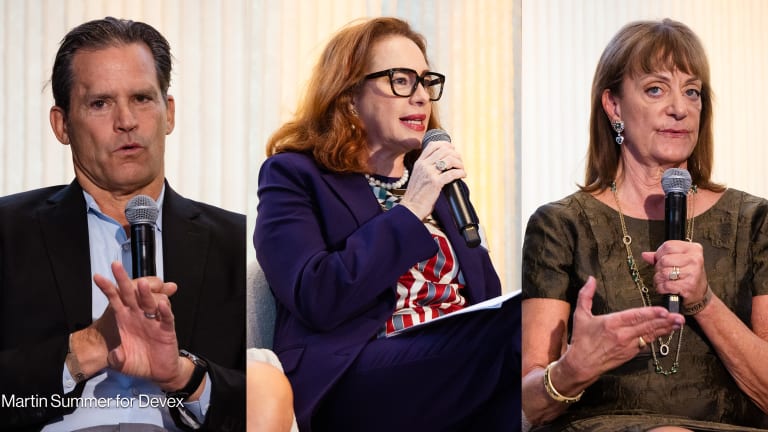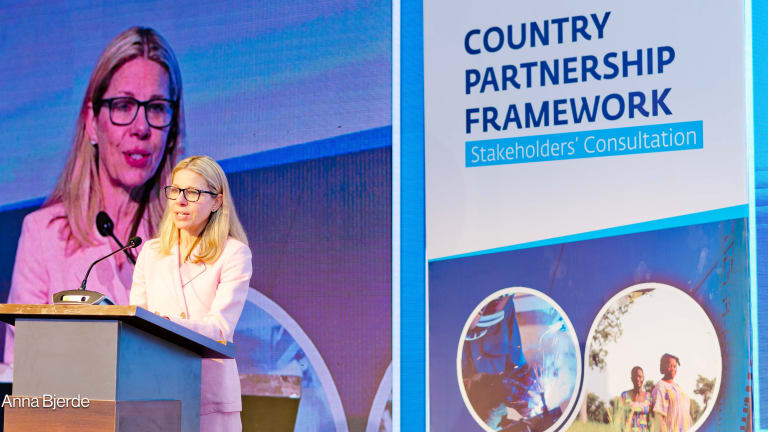
EDITOR’S NOTE: It’s far too early to draw negative conclusions on Power Africa’s success — much less its future impact. Center for Global Development’s Todd Moss and Beth Schwanke explain what Power Africa is and is not, and how the initiative should be assessed.
A New York Times piece alleging a “sputtering” Power Africa in advance of President Barack Obama’s trip to Kenya and Ethiopia took us by surprise. To those of us who have been avidly following Power Africa and the continent’s long march toward universal electrification, it’s far too early to draw such negative conclusions on the initiative’s success — much less its future impact. Instead, the early signs are actually quite positive.
Electricity access for entire countries does not happen with the flip of a switch. Energy projects in Africa take an average of 5-10 years from inception to completion. So, it’s pretty difficult to see how an initiative launched only in June 2013 should be expected to have delivered large-scale electrification in two short years. (This is especially true for the main country in the article, Nigeria, where the past year has been one of unusual uncertainty: a lengthy and highly contested presidential campaign, a long lame-duck period, and an unprecedented political transition. In fact, four months after the election, the country still doesn’t have a cabinet.). No one would anticipate an immediate impact from a program to double college graduation rates in a country where few students attend elementary school. It’s just as unrealistic to expect dramatic infrastructure investments to be up and running already in some of the poorest and least-electrified countries.
That’s also why many of the early projects in Power Africa are not greenfield, but rather use a range of U.S. government assistance to push existing power projects over the finish line. That’s exactly what we’ve seen: partial financing of the Lake Turkana Wind Power Project in northern Kenya, technical assistance for the Cen PowerKpone natural gas plant in Ghana, and a portfolio of investments in renewables. The Overseas Private Investment Corp. is involved in major projects such as the Azura-Edo power project in Nigeria, among a growing pipeline of others. The Millennium Challenge Corp. has Power Africa-related compacts off the ground in Ghana ($498.2 million) and Malawi ($350.7 million), with the likelihood of electrification being included in future compacts with Benin, Liberia and Tanzania.
The expiration of the Export-Import Bank is a problem for Power Africa, but that agency was never truly the financing cornerstone of the initiative. That is being driven by the private sector, OPIC, MCC and the multilateral development banks.
Which brings us to what Power Africa is — and what it is not. Power Africa was never intended to spend U.S. aid to build new power plants from scratch. Power Africa was instead intended to play a catalytic role in driving electricity generation and transmission — initially in six sub-Saharan African countries, and now across the continent. It was always designed as an effort to combine policy reform nudges with public and private capital to accelerate existing national plans. It’s the only major U.S. development initiative that is responsive to what African citizens and their governments want. It’s an engagement model based on partnership and mutual interests rather than the outdated donor-recipient model.
So then how should Power Africa be appraised? Less like the U.S. President’s Emergency Fund for AIDS Relief counting the number of drugs delivered to AIDS patients in one year and more like the returns on a long-term venture capital portfolio. Individual deals will fall apart or fail. That’s the nature — and the norm — for complicated infrastructure deals. But Power Africa as a whole should be judged based on whether it is contributing to accelerated electricity access on the continent. Early indicators are encouraging.
More, of course, can be done by the administration to ensure Power Africa’s success. Transparent performance metrics for tracking progress should be regularly released (we understand that they will be). Underperforming agencies, including their cases for adding value, should be closely scrutinized and those making false claims should be called out (we will do our part here). A strengthened OPIC could make a much larger contribution to Power Africa’s ambitious goals. And a huge step forward would be congressional authorization and oversight. We hope the administration will take advantage of rare bipartisan support for Power Africa and support the House bill and hopefully forthcoming Senate companion.
So as President Obama heads to Kenya and Ethiopia this week, we will be looking for further details about Power Africa’s progress, gaps and future plans. We will also hope for thoughtful recognition of what a truly legacy-worthy presidential initiative Power Africa has the potential to be.
Edited for style and republished with permission from the Center for Global Development. Read the original article.









